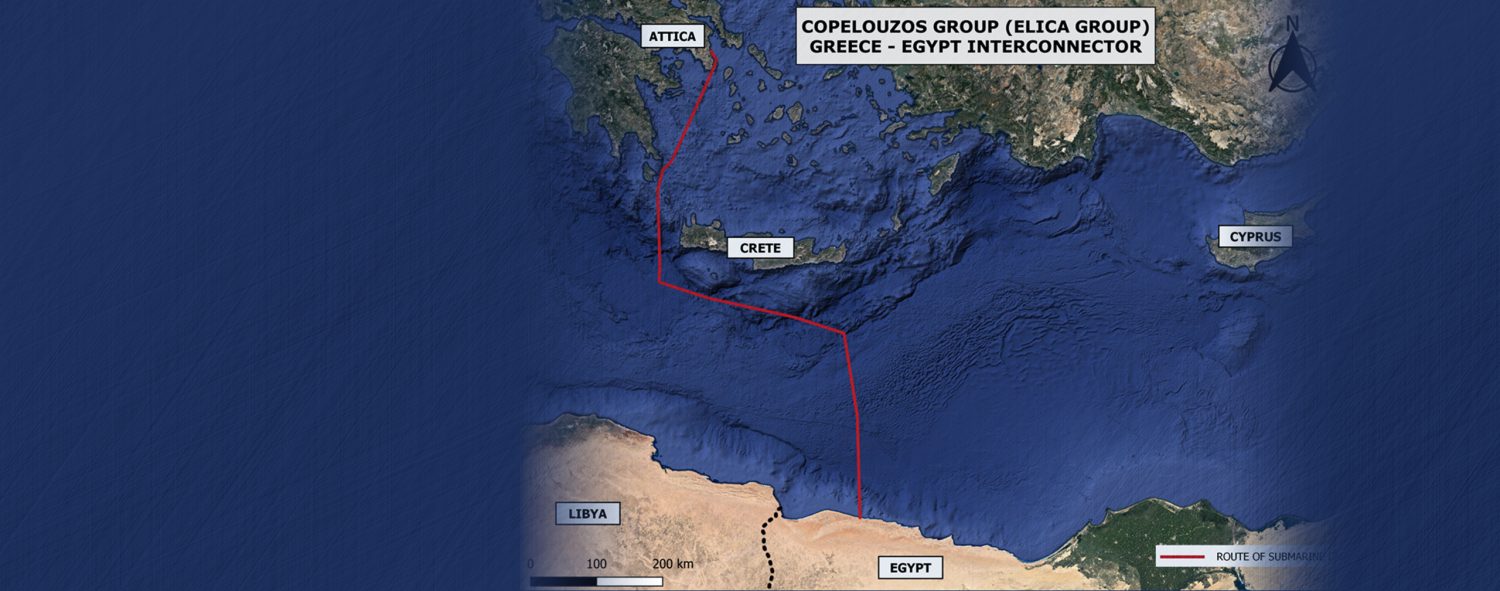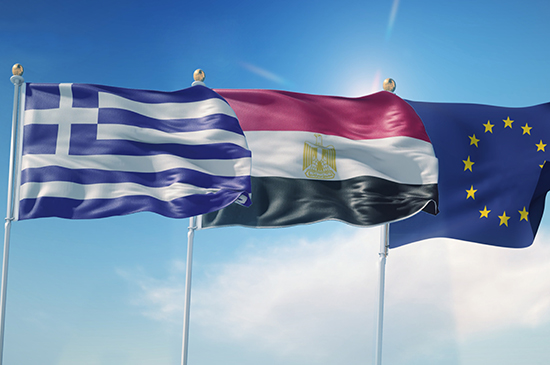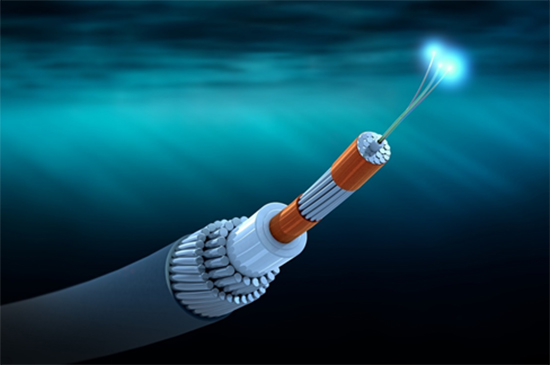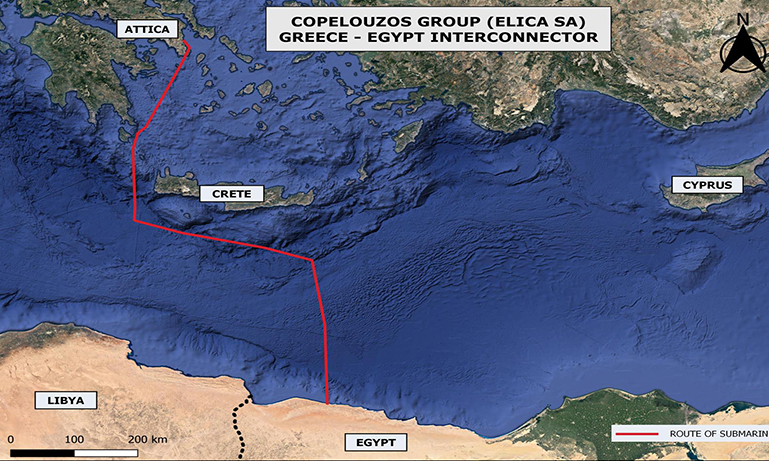A project that will change the energy landscape in Greece and in Europe is the one that is being developed in a fast and methodical way by Elica Mediterranean Electrical Interconnection S.M. S.A, a member of the Copelouzos Group, concerning the electrical interconnection between Egypt and Greece. It is the project known as “GREGY- Elica Interconnector” and it receives the firm support of both countries, Greece and Egypt, but also of the European Commission, as the project has been included in the 6th PCI/PMI list of projects of the European Union, as well as in the Global Gateway framework of the Union, which includes projects of high strategic importance for Europe. This project is the only realistic solution for the electrical interconnection of the two countries, directly connecting Egypt with mainland Greece without intermediate landing points.
The submarine electricity cable with bi-directional power transmission capacity and a total expected budget of 4.2 billion euros will be built between Greece and Egypt. It will carry 100% green energy produced form renewable energy plants in Egypt, benefiting both residential and business consumers in Greece and neighbouring E.U. countries. In this way, Greece will become an important green energy hub in the Eastern Mediterranean and Southeastern Europe.
The numbers are indicative of the positive green energy footprint of the project. The 3,000 megawatts of electricity that the GREGY project will transfer will replace 4.5 bcm of natural gas per year and reduce CO2 emissions by 10 million tons per year.
Equally important is GREGY’s contribution to tackling the climate crisis and accelerating the transition to a green economy. In fact, the electricity interconnection between Greece and Egypt, envisioned by Dimitris Copelouzos in 2008 and now proceeding at a very fast pace, is the only energy project that answers the dual problem of our time: cheap energy and green energy, while at the same time significantly strengthening Greece’s geopolitical position and economy.
It is characteristic that the green energy that GREGY will transfer will be highly competitive in relation to the energy prices of today. And, at the same time, this energy will exclusively be green energy produced from come from renewable energy sources and not from fossil fuels, such as natural gas.
The project is fully in line with Europe’s energy strategy towards the electrification of energy systems and their supply with clean green energy, supporting the faster transition toa greener economy and energy security.
This positive dimension of GREGY is further enhanced if one takes into account the use of the energy transferred: about one third will be consumed in Greece, one third will be exported to neighbouring E.U. countries and one third will be used in Greece for the production of green hydrogen, with the largest amount of this hydrogen also being exported to neighbouring E.U. countries. All these factors together make the electrical interconnection between Greece and Egypt the most strategically important energy project in the region, whose positive impact extends far beyond the borders of Greece. GREGY is the cornerstone for the creation green energy corridors that will link South to North and shows the strategic direction in which Europe must move in the context of energy security and green transition.




